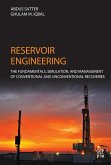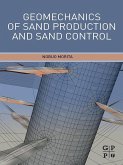Core Analysis: A Best Practice Guide is a practical guide to the design of core analysis programs. Written to address the need for an updated set of recommended practices covering special core analysis and geomechanics tests, the book also provides unique insights into data quality control diagnosis and data utilization in reservoir models.
The book's best practices and procedures benefit petrophysicists, geoscientists, reservoir engineers, and production engineers, who will find useful information on core data in reservoir static and dynamic models. It provides a solid understanding of the core analysis procedures and methods used by commercial laboratories, the details of lab data reporting required to create quality control tests, and the diagnostic plots and protocols that can be used to identify suspect or erroneous data.
- Provides a practical overview of core analysis, from coring at the well site to laboratory data acquisition and interpretation
- Defines current best practice in core analysis preparation and test procedures, and the diagnostic tools used to quality control core data
- Provides essential information on design of core analysis programs and to judge the quality and reliability of core analysis data ultimately used in reservoir evaluation
- Of specific interest to those working in core analysis, porosity, relative permeability, and geomechanics
Dieser Download kann aus rechtlichen Gründen nur mit Rechnungsadresse in A, B, BG, CY, CZ, D, DK, EW, E, FIN, F, GR, HR, H, IRL, I, LT, L, LR, M, NL, PL, P, R, S, SLO, SK ausgeliefert werden.









